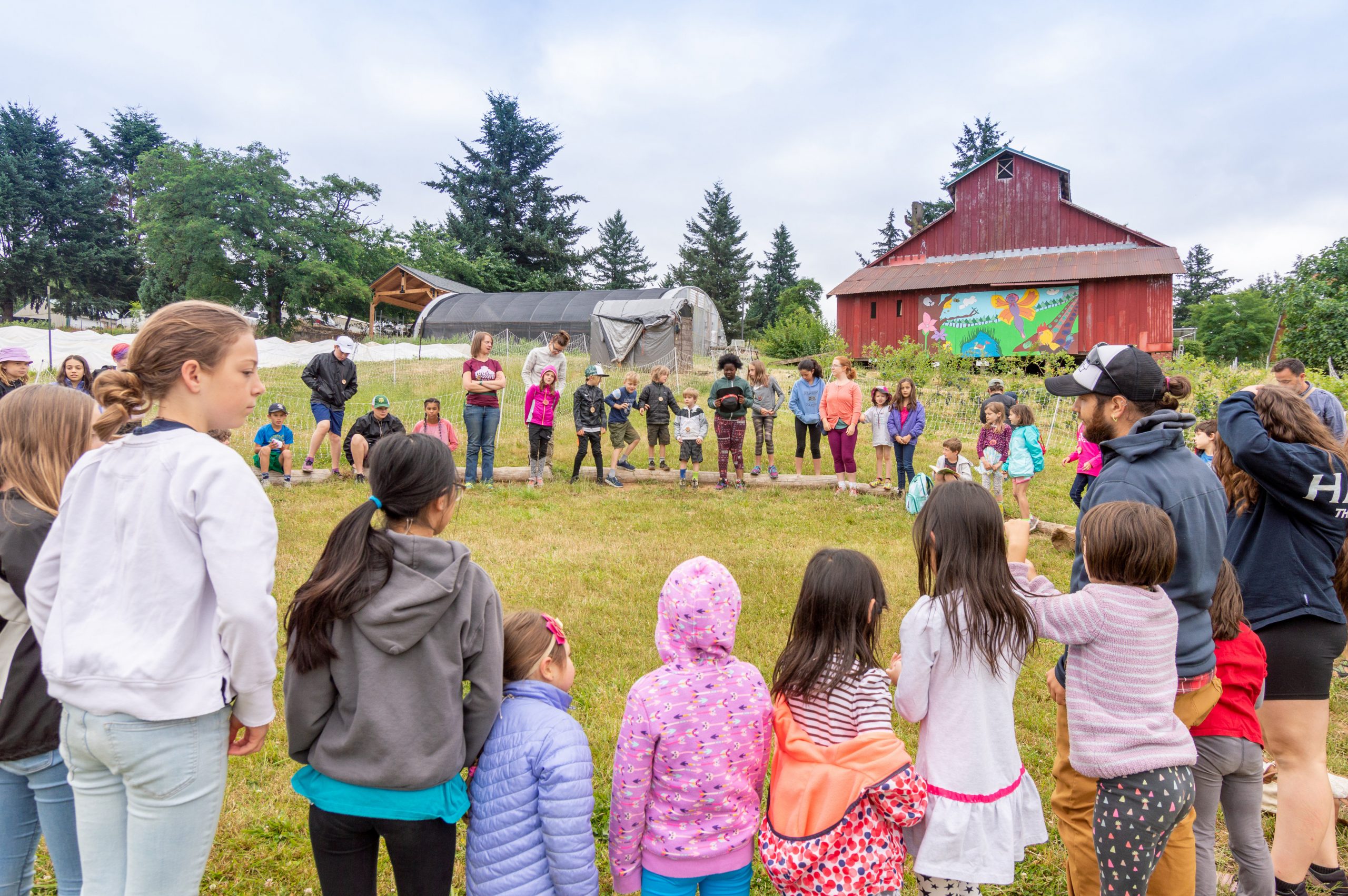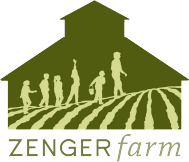Dear Zenger Farm Community,
When I first set foot on the land at Zenger Farm, I fell in love. I clearly remember my heart saying, “This land is sacred. It has a story. A promise.”
When I joined Zenger Farm, we were in the final stages of constructing a new community space for children’s’ programs, community dinners, and more. Ultimately, we raised over $2,300,000 from a generous group of donors. The community space is more than just a physical space to host our programs – it represents a commitment to nourish children and their families through the healing power of food, land, and community.
After the completion of this space, we were excited to grow our programs. Our community leaned into the challenge and together we expanded our CSA prescription program from 25 families per year to over 250 families, grew our community cooking workshops to include thousands of families per year, started an after-school program, and welcomed more kids to the farm for our education programming.

As we settled into this period of growth, we asked ourselves, “Who wants our programs the most?”, “ Who needs Zenger Farm the most?” and examined whether we were prioritizing connecting with those communities. In fact, we didn’t have a clear definition of who we considered “community”. Was it our immediate neighbors? All of Portland? David Douglas School District kids and families? Food insecure people? Small-scale organic farmers? There was also growing acknowledgement that although Zenger Farm is in one of the most multicultural neighborhoods in Oregon, our staff and board were almost entirely white, and program participants were not involved in guiding our work. This was evidence that we needed to do better as an organization.
I believe that effective transformational change is led by community leaders who are at the center of social justice issues. In 2017, we engaged in a strategic planning process that included the voices of over 500 community leaders, non-profit partners, teachers, parents, and neighbors. We listened to many people who affirmed the need for healing through a connection with food, land, and community at Zenger Farm. We heard that People of Color did not see themselves prioritized or reflected in our work, and that we needed to do a better job elevating their voices. Our subsequent self-reflection and conversations led to a commitment to fight the root causes of injustice in our food system – anti-Black racism and colonialism.
As a result, we have committed to centering Black and Indigenous people in our work. From my perspective, this doesn’t mean we are excluding other historically and persistently oppressed people. It means that when we are recruiting new Community Chefs or scheduling field trips or developing partnerships, deciding where our food and other resources are directed, we have an agreement about who to call, email or meet with first. We continue to examine the ways we operate, including hiring processes, communication strategies, curriculum, and more.
I am very excited and energized by the work that Zenger Farm is doing, and we have heard positive feedback from the community as well. I am excited to step aside to make space for new leadership to carry the mission forward. I’ve loved working with the staff, partners and supporters at Zenger Farm and I’m going to miss working with the Zenger Farm community. I am confident in the strength of staff and board leadership and in the amazing community of supporters that will sustain Zenger Farm.
Thank you to the community of supporters who worked alongside Zenger Farm during my tenure as Executive Director. It would mean a great deal to me if you would show your love for Zenger Farm by making a financial contribution. Click here to make a gift. With your support, Zenger Farm will continue to be a leader in creating an equitable and just food system.
Gratefully,
Mike Wenrick
Executive Director, Zenger Farm
By Colleen|June 21, 2019|Uncategorized|Comments Off

